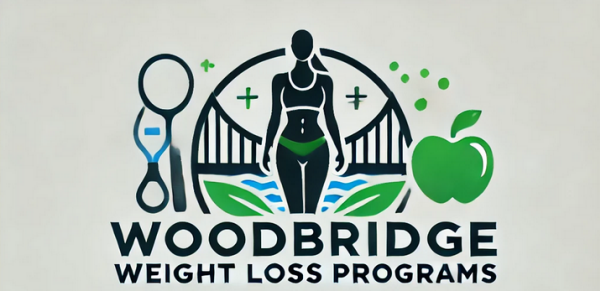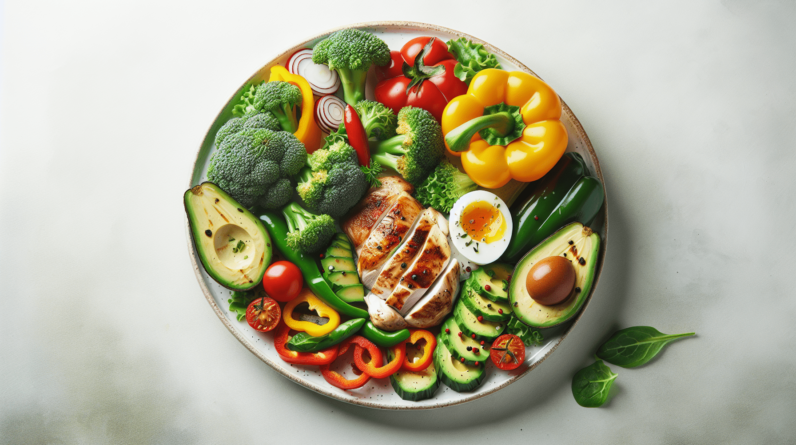
In “The Effects of Sugar on Your Weight Loss Efforts,” you’ll explore how sugar can sneak its way into your diet and sabotage your weight loss plans. From hidden sugars in your favorite foods to the way it impacts your body’s metabolism, this article sheds light on the often underestimated role sugar plays in your journey towards a healthier you. You’ll gain insights on how reducing sugar intake can boost your weight loss results and help you feel more energized, making it easier to stick to your goals. Have you ever wondered why losing weight feels like an uphill battle despite following your diet and workout plans religiously? You might be surprised to learn that sugar could be a major culprit sabotaging your efforts. In this article, we will dive deep into the effects of sugar on your weight loss journey and provide some insight on how to manage its intake effectively. Buckle up, because we’re about to sugar-coat—oops, we mean unveil—the truth!

Understanding Sugar and Its Types
Sugars are simple carbohydrates that your body converts into glucose (a form of sugar used for energy). But not all sugars are created equal. Knowing the different types can help you understand their effects on your body.
Natural vs. Added Sugars
- Natural Sugars: These are sugars found naturally in whole foods, such as fruits and vegetables. They usually come with fibers, vitamins, and minerals, making them a healthier option.
- Added Sugars: These are sugars and syrups added to foods during processing or preparation. They offer no nutritional benefits and can lead to an array of health problems.
Examples of Natural Sugars:
- Fructose: Found in fruits.
- Lactose: Found in milk and dairy products.
Examples of Added Sugars:
- Sucrose: Common table sugar.
- High Fructose Corn Syrup (HFCS): A sweetener found in many processed foods and drinks.
| Type | Examples | Source |
|---|---|---|
| Natural Sugars | Fructose, Lactose | Fruits, Vegetables, Dairy |
| Added Sugars | Sucrose, HFCS | Processed foods, Beverages |
The Glycemic Index (GI)
The Glycemic Index measures how quickly foods raise your blood sugar levels. High-GI foods cause spikes in blood sugar, while low-GI foods lead to gradual increases. Consuming high-GI foods can result in energy crashes, cravings, and increased fat storage—all of which are detrimental to weight loss.
| Glycemic Index Level | Food Type | Examples |
|---|---|---|
| High (70 and above) | High-GI Foods | White bread, Sugary drinks, Sweets |
| Medium (56-69) | Medium-GI Foods | Whole wheat bread, Brown rice |
| Low (55 or less) | Low-GI Foods | Most fruits, Vegetables, Legumes |
How Sugar Affects Your Body
Knowing the types of sugars and their Glycemic Index levels is the first step. Now, let’s examine how sugar impacts different aspects of your body and your weight loss goals.
Blood Sugar Spikes and Crashes
When you consume high-GI foods, your blood sugar spikes, causing your pancreas to release insulin. Insulin helps cells absorb glucose, but too much insulin can lead to:
- Increased fat storage
- Cravings for more sugar
- Energy crashes
This cycle can leave you in a constant state of hunger and tiredness, undermining your weight loss efforts.
Hormonal Influence
Insulin isn’t the only hormone affected by sugar intake. Consider:
- Leptin: This hormone tells your brain when you are full. High sugar consumption can make your body resistant to leptin, leading to overeating.
- Ghrelin: Known as the hunger hormone, ghrelin levels can increase due to sugar intake, making you feel hungrier.
Fat Storage
Excess sugar in the body is stored as fat, especially around your midsection. This visceral fat is not just a cosmetic concern but is linked to serious health issues like heart disease and type 2 diabetes.
The Role of Sugar in Common Weight Loss Plans
Many weight loss plans emphasize reducing sugar intake, but let’s break down how sugar fits into some of the most popular diets today.
Low-Carb Diets (e.g., Keto, Atkins)
These diets focus on reducing carbohydrate intake, which naturally reduces sugar consumption. By limiting carbs, your body enters a state called ketosis, where it burns fat for fuel instead of glucose.
- Pros: Rapid weight loss, reduced cravings, better blood sugar control.
- Cons: Can be restrictive, may lead to nutrient deficiencies if not well-planned.
Intermittent Fasting
Intermittent Fasting (IF) involves cycling between periods of eating and fasting. By eating fewer, more controlled meals, you naturally reduce sugar intake.
- Pros: Improved insulin sensitivity, weight loss, easier meal planning.
- Cons: Difficult to maintain for some people, requires careful planning to avoid overeating during eating windows.
Whole30
This 30-day program eliminates added sugars, grains, dairy, and legumes to reset your body. The focus is on eating whole, unprocessed foods, making it easier to avoid added sugars.
- Pros: Helps identify food sensitivities, promotes healthy eating habits.
- Cons: Extremely restrictive, can be difficult to stick to for 30 days.
Low-Glycemic Diet
Focuses on eating low-GI foods to keep blood sugar levels stable. This is a more balanced approach that doesn’t necessarily eliminate any food groups but prioritizes foods that are less likely to spike blood sugar.
- Pros: Sustainable, balanced, improves blood sugar control.
- Cons: Requires knowledge of GI values, may not result in rapid weight loss.
| Diet Type | Approach | Pros | Cons |
|---|---|---|---|
| Low-Carb Diets | Reduces carb and sugar intake | Rapid weight loss, better blood sugar control | Restrictive, potential nutrient deficiencies |
| Intermittent Fasting | Cycles of eating and fasting | Improved insulin sensitivity, weight loss | Difficult to maintain, risk of overeating |
| Whole30 | Eliminates added sugars and more | Identifies food sensitivities, healthy habits | Extremely restrictive, short-term |
| Low-Glycemic Diet | Focuses on low-GI foods | Sustainable, balanced | Requires GI knowledge, slower weight loss |
Strategies to Reduce Sugar Intake
Understanding the adverse effects of sugar on weight loss, you may be wondering how to cut down on your sugar intake without feeling deprived. Here are some friendly tips:
Read Labels Carefully
Food manufacturers are sneaky. Sugar can hide under various names on ingredient lists, including:
- Dextrose
- Glucose
- Fructose
- Corn syrup
- Molasses
Opt for Whole Foods
Whole foods like fruits, vegetables, lean meats, and grains are less likely to contain added sugars. They also come packed with essential nutrients that benefit your overall health.
Beware of Liquid Calories
Sugary drinks like soda, flavored coffee, and even fruit juices can be a major source of hidden sugars. Opt for water, herbal tea, or black coffee instead.
Choose Healthy Snacks
Instead of reaching for a candy bar, choose healthier options like:
- Fresh fruit
- Nuts and seeds
- Greek yogurt (plain)
- Vegetables with hummus
Gradual Reduction
If you’re used to high sugar consumption, going cold turkey might be challenging. Gradually reduce your sugar intake to make the transition smoother.

Understanding Cravings and How to Manage Them
Cravings can be one of the toughest challenges when trying to reduce sugar. Understanding why you crave sugar can help you manage these urges more effectively.
Emotional Triggers
Stress, boredom, and emotional distress can often drive you to seek comfort in sugary foods. Addressing these emotional aspects can help you better manage your cravings.
Physical Triggers
Sometimes, your body signals cravings when it’s actually in need of nutrients. Ensure you’re eating balanced meals with enough proteins, fats, and fiber to stay fuller longer.
Substitute Wisely
Substitute high-sugar foods with healthier alternatives. For instance, if you crave something sweet, choose a piece of fruit instead.
Stay Hydrated
Sometimes thirst is mistaken for hunger or cravings. Drink sufficient water throughout the day to keep your body well-hydrated.
Seeking Professional Guidance
Nutritionists and Dietitians
A qualified nutritionist or dietitian can provide personalized advice and meal plans to help you cut down on sugar without compromising nutritional needs.
Medical Check-Ups
If you find cutting down on sugar particularly challenging, it might be worth getting a medical check-up to rule out conditions like insulin resistance or hormonal imbalances.
Conclusion
Reducing your sugar intake can significantly impact your weight loss efforts and overall health. Understanding the types of sugars, how they affect your body, and implementing effective strategies can make this journey easier and more sustainable.
Remember, you don’t have to go through this alone. Professional guidance and gradual changes can make a world of difference. Ready to embark on a sugar-reduction journey? Your future self will thank you!



